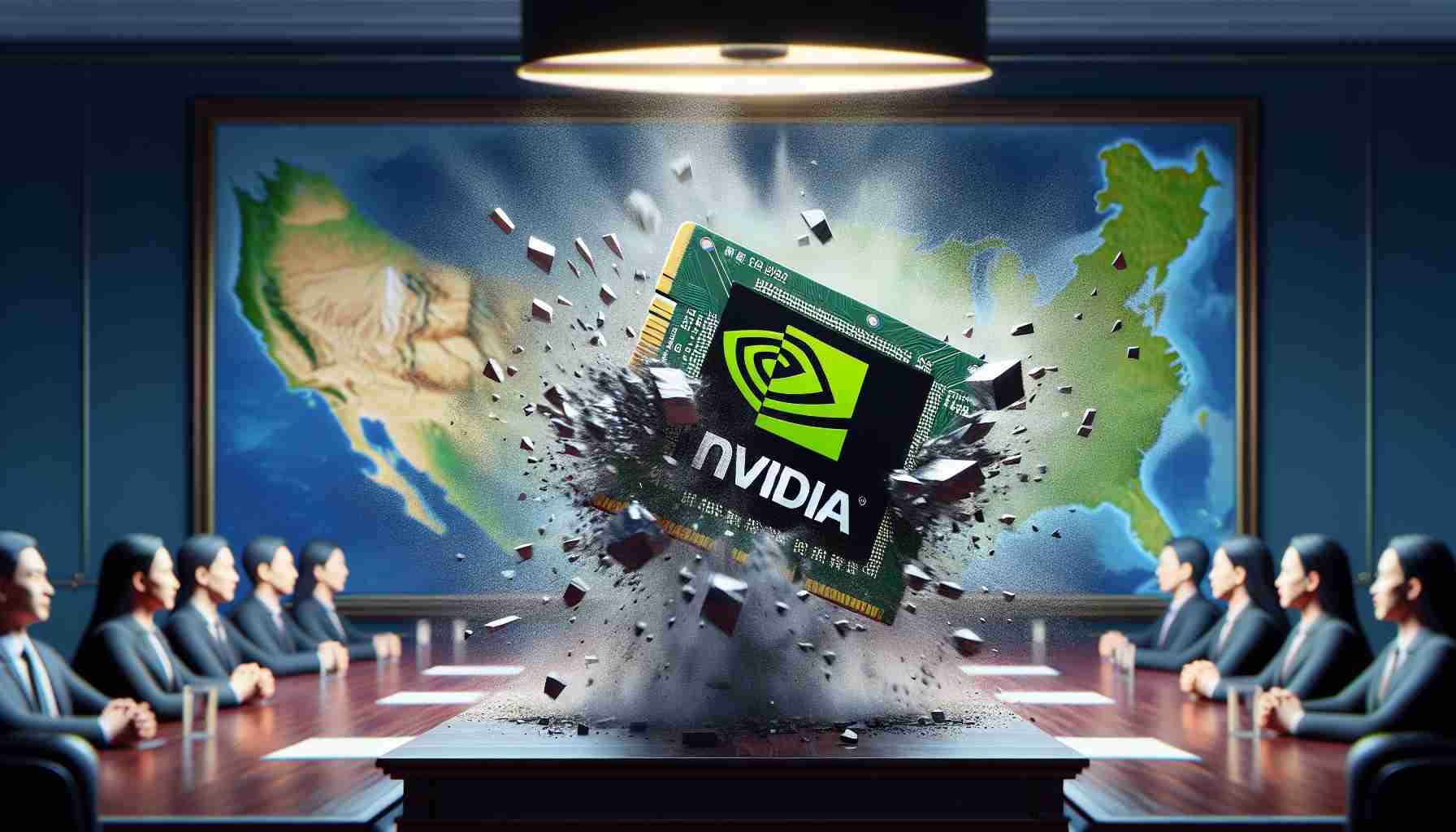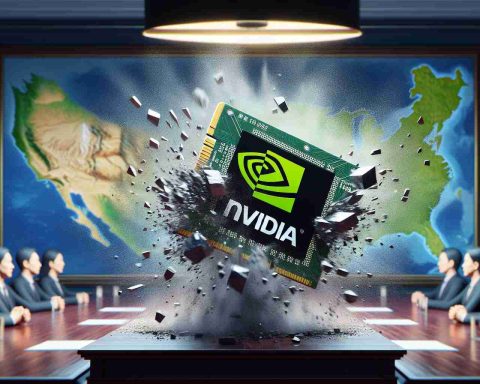In a surprising turn of events, NVIDIA Corporation (NASDAQ:NVDA), renowned for its dominance in the AI sector, saw a dip in its stock value following a significant meeting between a high-ranking company executive and Chinese officials. This unexpected slide occurred shortly after the company reported stellar performance the previous week.
According to reports from the South China Morning Post, NVIDIA’s executive vice president of worldwide field operations, Jay Puri, engaged in discussions with China’s Vice Commerce Minister, Wang Shouwen, on November 25th. This meeting underscored the critical role China plays as a market for NVIDIA, while Chinese officials expressed enthusiasm for foreign businesses to flourish within an increasingly open China.
This diplomatic engagement unfolded just as speculation arose about potential new US restrictions targeting China’s semiconductor industry, likely to be announced soon. These measures might include placing up to 200 more Chinese chip companies on a trade blacklist, as noted by Reuters. Additionally, upcoming US regulations could further limit the export of high-bandwidth memory chips to China.
Investors are understandably jittery as geopolitical and market pressures mount. Despite NVIDIA’s remarkable 54% revenue growth projection for 2025, the company now faces the challenge of meeting sky-high market expectations while navigating political complexities.
Adding to NVIDIA’s challenges, the company finds itself contending with Apple for the title of the world’s most valuable company, both with market capitalizations around $3.5 trillion. The stakes are indeed high for NVIDIA to live up to its promises amidst this competitive environment.
Unveiling the Global Impact of Semiconductor Disputes: Economic Power Plays and Consumer Consequences
A New Dimension in Global Trade Tensions
The semiconductor industry, pivotal to the global economy, has grown into a complex battlefield where the war is fought not only for market share but also for strategic dominance. As NVIDIA finds itself at the center of a geopolitical tug-of-war between the United States and China, implications reach far beyond corporate profits, potentially reshaping consumer access, technological advancements, and international relations.
Why the Semiconductor Clash Matters
Semiconductors are the backbone of modern technology, powering everything from smartphones to supercomputers. Any disruption in semiconductor trade can cascade into numerous industries, affecting prices and availability of electronic devices worldwide. A key question arises: How will potential regulations on semiconductor sales to China affect global supply chains?
Broader Impacts on People and Countries
With a potential blacklist of up to 200 Chinese chip companies, nations dependent on these supply chains face uncertainties. Countries like South Korea and Taiwan, major players in semiconductor manufacturing, may find themselves navigating an increasingly fragmented market. For consumers, this could translate into higher prices and limited availability of high-tech goods.
Communities with economies heavily tied to technology production might experience shifts in employment opportunities as companies realign their strategies in response to new trade barriers. Additionally, tensions in trade can hinder technological advancements, slowing down innovations that rely on cutting-edge semiconductors.
The Duality of Progress: Advantages and Disadvantages
Advantages:
1. Innovation Boost: Heightened competition between global giants like NVIDIA and national interests may spur innovation, leading to breakthroughs in semiconductor technology.
2. Market Diversification: Companies might explore alternative markets and partnerships, leading to a more diverse and resilient global tech ecosystem.
Disadvantages:
1. Consumer Impact: Potential disruptions in supply chains could lead to delays in technology products reaching the market, affecting everything from phone releases to gaming consoles.
2. Economic Instability: Markets may witness increased volatility, impacting investments and economic stability, especially for tech-dependent regions.
Controversies Surrounding Semiconductor Disputes
An essential controversy is the ethics of technology trade restrictions. Do these barriers protect national interests, or do they stifle the global flow of innovation? Moreover, as companies like NVIDIA are caught in geopolitical crossfires, there is a broader discussion about the responsibilities of corporations in maintaining a balance between national security and global development.
President Warsame Yamamah from TechPolicy Institute commented, “Restrictive measures can safeguard national interests, yet we must tread carefully to avoid setting back global technological progress.”
The Road Ahead: Can Tech Giants Navigate These Waters?
As NVIDIA faces off against Apple and other competitors in the high-stakes game for market leadership, it is essential for companies to devise strategies that balance political sensitivities with business ambitions. Could collaborations instead of restrictions pave a sustainable path forward for the tech industry?
For further insight into these dynamics, stakeholders and policymakers must monitor unfolding events closely. Addressing these challenges collaboratively might hold the key to ensuring both economic and technological stability.
For more information related to the semiconductor industry and global trade policies, visit reputable sources like Reuters and TechCrunch.









